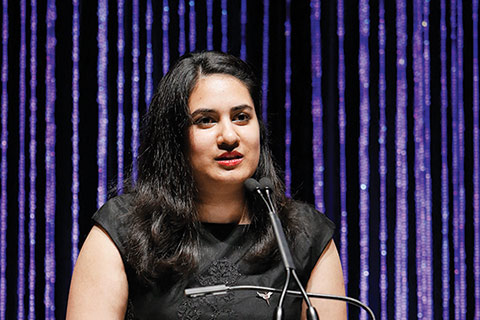In high school, I was shy. When I enrolled at U of T to study biology, I joined its First-Year Learning Communities program, which helped me come out of my shell.
The program’s leaders placed me and other life-science students in the same classes for core courses. I took sessions with upper-year mentors and faculty advisers on how to write exams and email a professor. I also learned how to join research projects and work-study programs in my faculty. First-Year Learning Communities organized social outings as well – the ROM, frozen yogurt, a board game café. The program helped me become more confident and outgoing, and some of my closest friends are people I met in it. I had such a good experience, I chose to mentor students in my third and fourth years.
My First-Year Learning Communities faculty adviser recommended I pursue a diverse science education. It’s one reason I felt comfortable serving as editor-in-chief of the Journal of Undergraduate Life Sciences and helping to plan U of T’s first Women in Science and Engineering conference. It’s also why I now enjoy a career as a neurogenetics research analyst. The program played a big role in so much of my growth.
Ishita Aggarwal (BSc 2015), as told to Sharon Aschaiek.
Recent Posts
People Worry That AI Will Replace Workers. But It Could Make Some More Productive
These scholars say artificial intelligence could help reduce income inequality
A Sentinel for Global Health
AI is promising a better – and faster – way to monitor the world for emerging medical threats
The Age of Deception
AI is generating a disinformation arms race. The window to stop it may be closing




